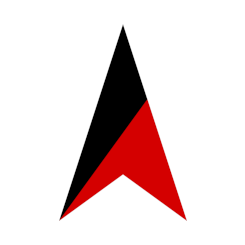First Basis project update
Andrew Lyon - Feb 2, 2020
After working on Basis for just about a year, I wanted to finally start sharing the results of the work. The project has gone through several spiritual evolutions, and in the process of all the change, I've found what I think are a core core set of ideas that can act as the foundation.
The first and most thought-out idea so far is the cost tracking mechanism. The idea that anyone can look at any product and know exactly how much labor and resources into it is not just exciting for economists, but has huge implications for a system where production is expressly social and based on need. Regardless of the system in use, it also allows us to estimate various externalities of production such as direct carbon output.
Secondly, the original version of Basis had the idea of various elected boards/councils that ran various regional services. This was a blueprint for a society, and since then, has been largely generalized to separate concepts: voting and permissions. One of the ultimate goals of Basis is to allow various groups of people to call votes and to have the results of those votes enforced by the system. So instead of setting up guidelines for a society and hoping that the patterns are self-enforcing as time marches on, instead the idea is to give members the ability to set and enforce their own guidelines. For an example, the members of a particular region might vote to give a council of 10 people a set of permissions (for instance, the permissions to manage regional assets), and at least 7 of the council members will have to agree in order for a transaction making use of that permission to be registered. In other words, the permissions of the system can be enforced by the voting mechanism itself, thereby limiting corruption of elected officials and making sure they are accountable to their voters. This also makes it so permissions can be revoked if voters are not happy with their representatives. So in general, we set up permissions for various regional or system-wide abilities, and assign those permissions through direct or liquid democracy.
Asset management is another major generalization. Instead of the idea of a housing board, and a means of production board, and various other boards for handling various other regionally-owned things, we just set up general asset management and let the people of a region manage assets their own way.
The last update worth noting is the idea of public companies. In the original paper, there were various services set up and codified that required elected supervision. Instead, the concept of pre-determined public services is being replaced with the idea of public companies and public projects. Instead of mandating that a school be public, instead the people of the region can decide this for themselves. Should a school charge tuition or should it be run off of the regional funds? Perhaps the region covers 50% of the school's costs, and the rest is up to members to pay the tuition. Or perhaps a region wants a hospital where all care is covered 100% by the region's funds. Maybe a bridge is built and the members of the region think 50% should be a regional cost and the other 50% should be covered by bridge toll. Public companies and public projects allow these setups to be created without being rigid about what should be created and what shouldn't.
These are some examples of the project-wide changes that give people the power to shape their own lives. Basis has been evolving more and more to better align itself with the ideas of libertarian socialism: free association, direct democracy, worker self-management, voluntary participation, and prosperity through common ownership. This is why I am finally happy to release and I'm now looking for people who want to contribute to the project, either in code or in ideas.
Please see our roadmap if you're interested in helping out!
